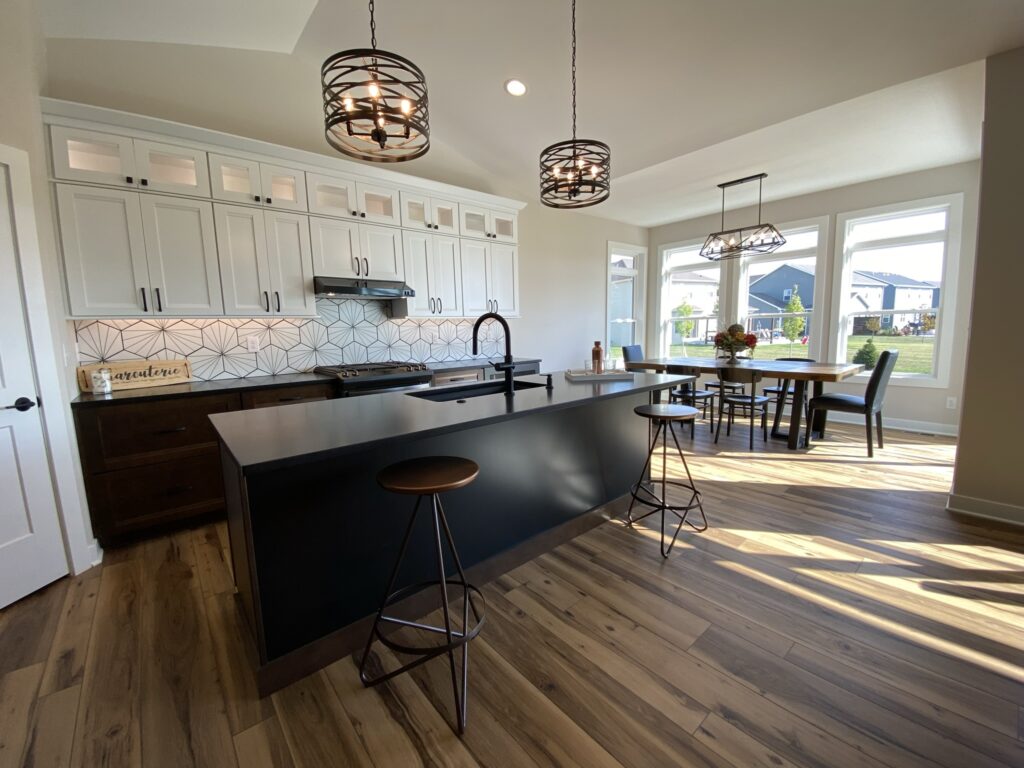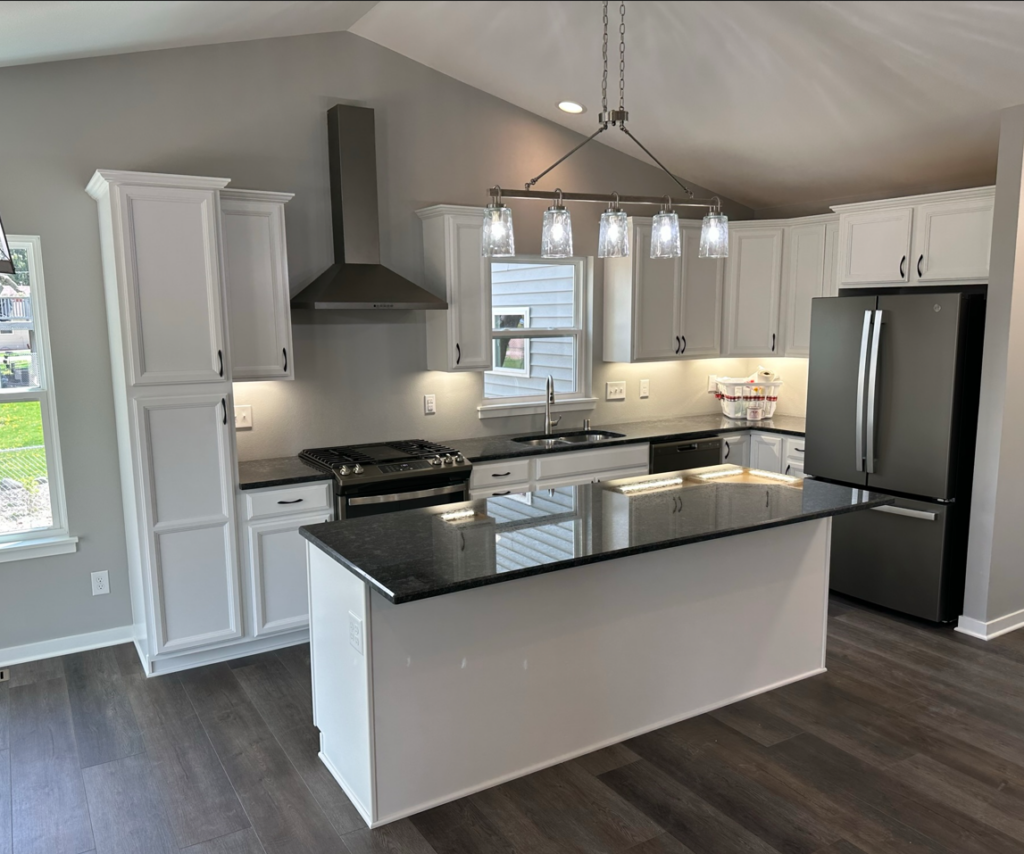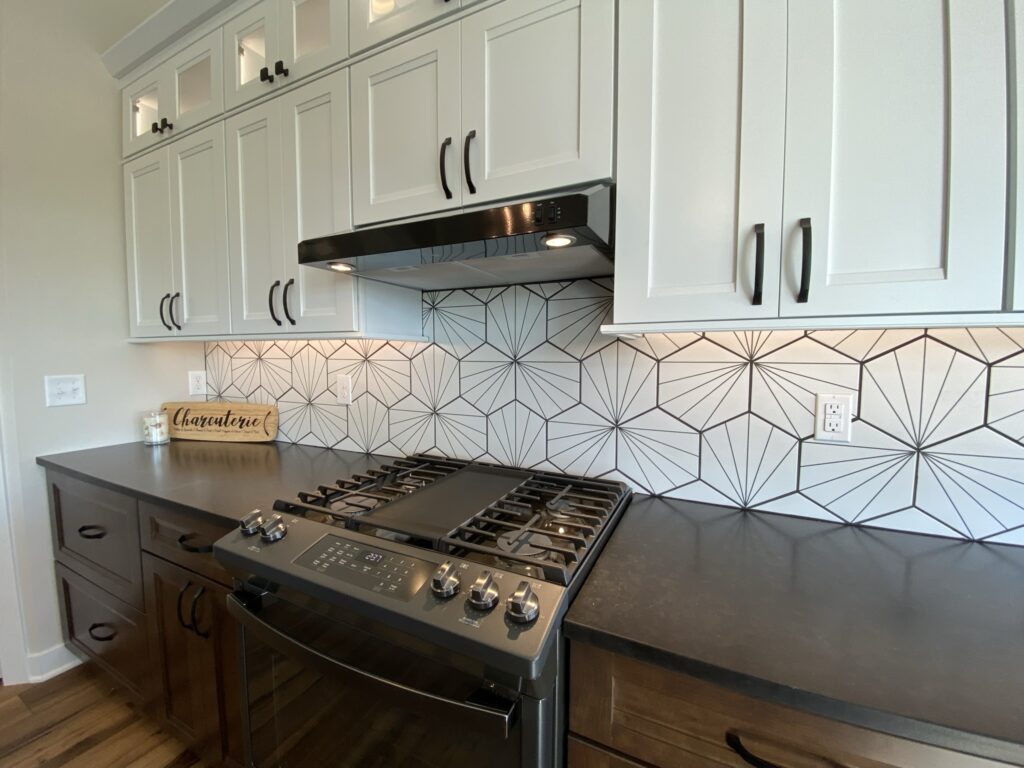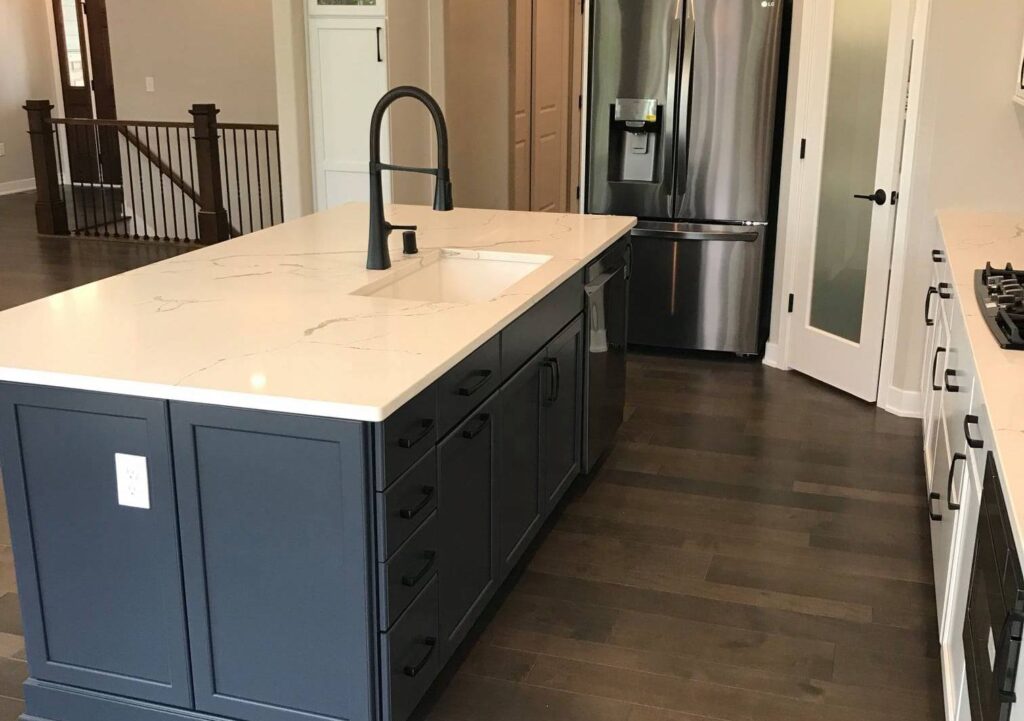Quartz VS Granite: Comparing the Pros and Cons for Your Countertops
Written By Dustin Harpe
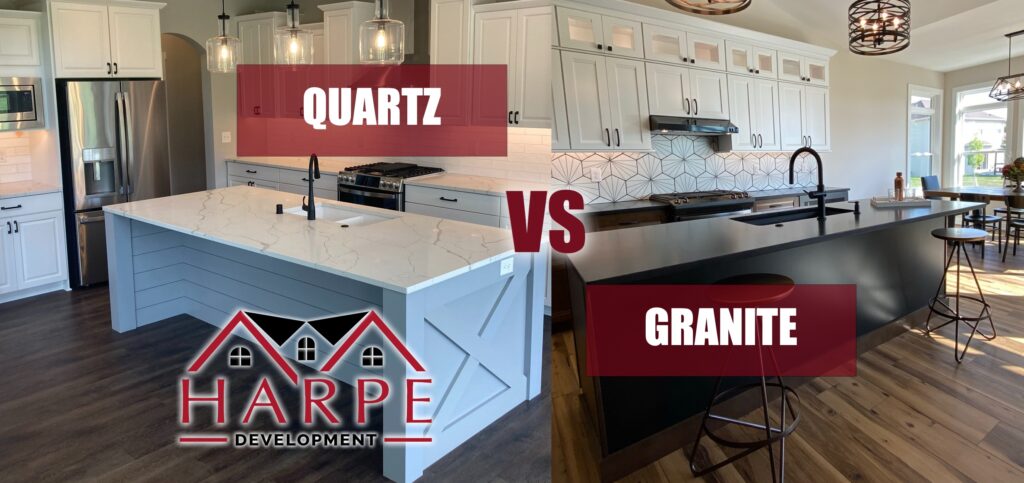
Selecting the right countertop material is a significant decision when designing or renovating your kitchen or bathroom. Two of the most popular choices for homeowners are granite and quartz. While they both offer durability and aesthetic appeal, there are distinct differences between the two. In this blog post, we’ll explore the pros and cons of granite and quartz countertops to help you make an informed decision.
Granite Countertops:
Pros:
1. Natural Beauty: Granite countertops are renowned for their unique and natural beauty. Each slab of granite is distinct, with varying patterns, colors, and veining, adding a touch of elegance and luxury to any space. If you appreciate the earthy and timeless appeal of natural stone, granite is an excellent choice.
2. Heat and Scratch Resistance: Granite is highly resistant to heat, making it an ideal surface for placing hot pots and pans directly on the countertop. Additionally, granite is scratch-resistant, which is a significant advantage in a busy kitchen where knives and other sharp objects are frequently used.
3. Increased Home Value: Granite countertops are considered a desirable feature in homes, which can positively impact your home’s resale value. Their durability, aesthetics, and association with luxury contribute to their appeal among potential buyers.
Cons:
1. Porosity: Granite is a naturally porous material, which means it can absorb liquids if left unsealed. This makes it susceptible to staining if spills are not promptly cleaned. However, regular sealing can help mitigate this issue and maintain the longevity of your granite countertops.
2. Regular Maintenance: Granite countertops require periodic sealing to prevent stains and maintain their luster. While the process is relatively simple, it’s important to consider the additional maintenance compared to other countertop materials.
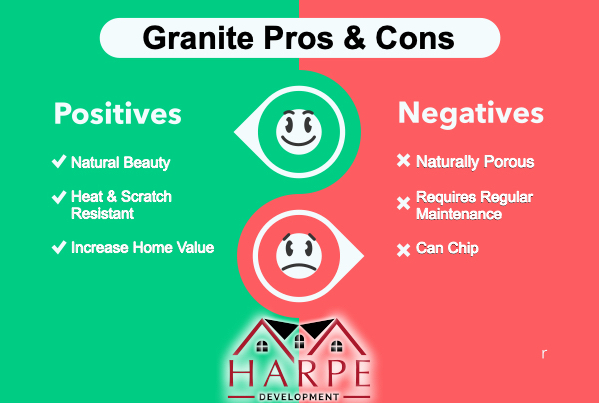
Quartz Countertops:
Pros:
1. Durability and Low Maintenance: Quartz countertops are engineered using a blend of natural quartz stone and resins, resulting in a highly durable and non-porous surface. They are resistant to stains, scratches, and heat, making them virtually maintenance-free. Unlike granite, quartz countertops do not require sealing.
2. Wide Range of Colors and Patterns: Since quartz countertops are engineered, they offer a wider range of color options and patterns compared to natural stone. This allows for better customization and ensures that you can find the perfect match for your kitchen or bathroom design.
3. Hygienic Surface: Quartz is non-porous, which means it doesn’t harbor bacteria or viruses. This makes quartz countertops an excellent choice for households with strict hygiene requirements or individuals with allergies or respiratory issues.
Cons:
1. Appearance: While quartz countertops can mimic the look of natural stone, some homeowners prefer the authenticity and unique patterns found in granite. Although advancements in manufacturing have improved the appearance of quartz, it may still lack the depth and character of natural stone.
2. Vulnerability to Heat: While quartz countertops are heat-resistant, they are not entirely heat-proof. Placing extremely hot items directly on the surface can cause damage, such as discoloration or cracking. It’s advisable to use trivets or heat-resistant pads to protect the countertop.
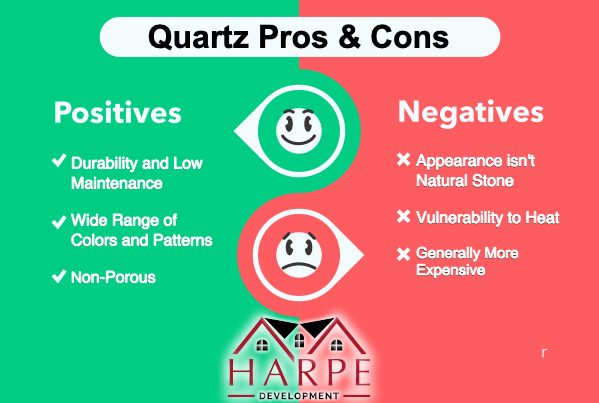
Choosing between granite and quartz countertops ultimately depends on your personal preferences, lifestyle, and budget. Granite offers natural beauty, heat resistance, and increased home value, but requires regular maintenance and is susceptible to staining. On the other hand, quartz provides durability, low maintenance, and a wide range of colors, but may lack the authenticity of natural stone. Consider your priorities, consult with professionals, and evaluate the long-term benefits to make an informed decision that suits your needs and enhances the overall aesthetics of your space.
